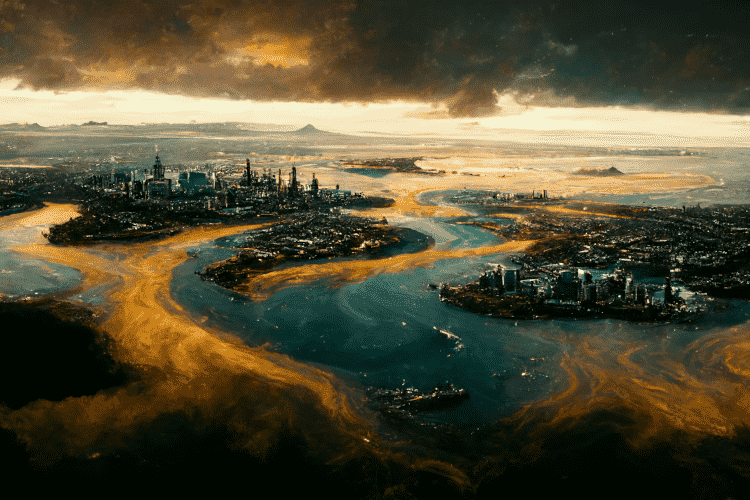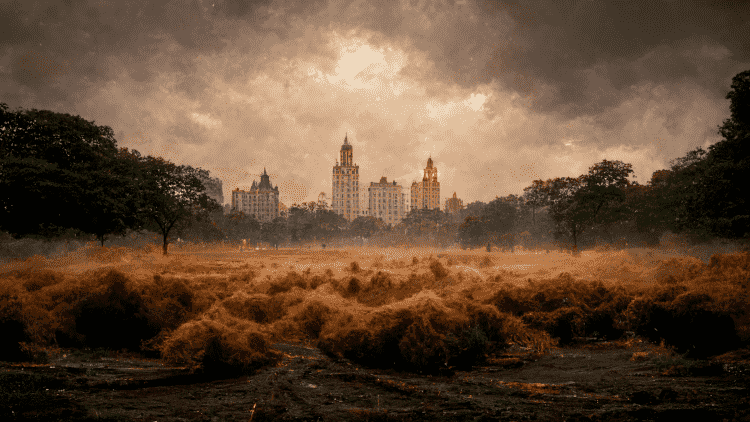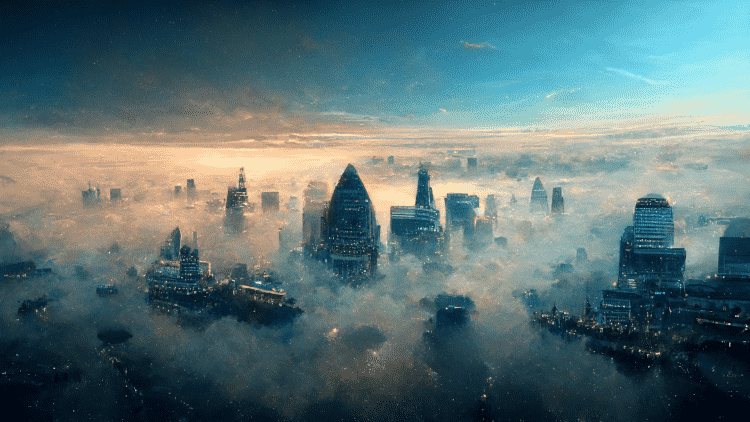
Our cities will look very different in the future as a result of climate change, unless we make changes now
Climate change could dramatically alter the way our cities look in the future, according to new AI visualisations of the world in 2100.
Energy experts at Uswitch used Midjourney, a text-to-image AI tool, to predict the effects of climate change in 20 locations around the world. Collaborating with professor Sam Fankhauser, research director of Oxford University Net Zero, they created a series of images revealing the best- and worst-case scenarios, using data from the latest IPCC report. The study revealed that unless we reach net zero by 2050, ‘the repercussions could lead to many places looking unrecognisable,’ says Ben Gallizzi, energy expert at Uswitch.

Like many cities, New York is getting warming. This is partially a result of the urban heat island effect, where the urban landscape traps heat that would normally escape during the night. This is a serious concern for New York, where climate change is driving extreme heat. Unless we significantly reduce greenhouse gas emissions, New York’s leafy Central Park could end up in a permanent state of drought.


The study predicts risk of flooding in major cities around the world, including Agra, Amsterdam and Rio de Janeiro. For some cities, such as Rio, the threat comes from a combination of sea level rise, increased rainfall and poor drainage infrastructure, leading to problems like landslides, the contamination of water reserves and the spread of disease.

Los Angeles will face more extreme wildfires, following its recent extreme temperatures over the last two years.


Recent summers in Britain’s capital have become noticeably hotter and drier. By the middle of this century, an average summer in London could be a fifth drier and an average summer’s day could be 3°C warmer. After London’s temperatures recently surpassed 41°C in the summer of 2022, heat waves are more likely to happen and could be even hotter. Air quality and pollution will also pose increasing risks to the health of all Londoners.
These AI predictions for 2100 are very different for a world where we achieve net zero 2050, however. While most of the changes needed to reach this goal lie in the hands of world and industry leaders, lifestyle changes will also make an impact.
‘There are some simple ways we can try and reduce our carbon footprint to help prevent things such as species from going extinct, wildfires ruining ecosystems, and rising sea levels,’ says Gallizzi. ‘These small changes could be as simple as reducing the number of days we commute by car, reassessing the type and amount of food we eat or making our homes more energy efficient.’





